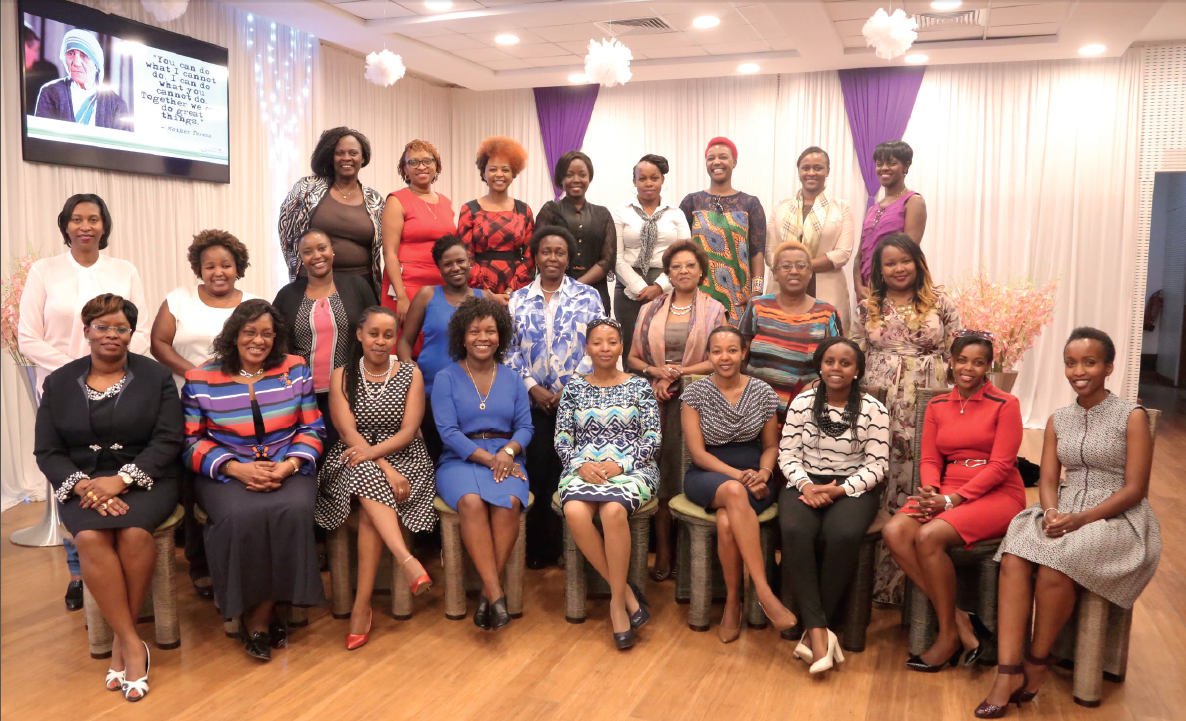Focus on Our Four Material Matters

Our material matters remained the same as was the case in the last financial year – Governance, Risk and Regulation; Innovation; Network Quality and Environmental Responsibility. In the course of the year, we implemented a number of initiatives geared towards making Safaricom a more purpose driven organization:
Towards Net Zero Carbon Footprint
As Safaricom network grows and becomes sophisticated, our demand and impact on Natural resources also grows exponentially. We have committed to reducing our environmental footprint. Our carbon footprint, comprises:
Scope one emissions – the diesel consumed;
Scope two emissions – electricity from the grid;
Scope three emissions – transportation – fleet and flights.
In 2017 we managed to grow the network while ensuring that the footprint didn’t grow. This was as a result of a decrease in diesel consumption. Energy efficiency measures put in place include, installation of low voltage auto phase selectors, cyclic batteries and conversion of genset sites to KPLC connections. Changes in energy mix have greatly contributed to this decrease.
Science Based targets
Our aspiration is to be a carbon neutral company by 2050. Steps taken towards achieving this include:
- Setting of science based targets
- Rolling out of clean and renewable energy solutions
From our science based targets, we have set ourselves milestones to achieve as follows through our renewable/ clean energy solutions:
- A reduction by 15% by the year 2020
- 43% by the year 2030
- 74% by the year 2050
The balance of 26% will be offset through other initiatives.
Diversity And Inclusion
Gender Equality in our Workplace
Despite having a gender balanced overall workforce, the progress in increasing the number of women in senior management and executive leadership remains slow. Through programmes such as Women in Leadership, we aim to accelerate the growth of more women leaders in business in the years to come. To attain balanced gender ratios, we will continue with our focus on streamlining our processes on recruitment, retention and growth.
Supporting the Differently Abled
During the period under review, we grew the proportion of our differently abled workforce from 1.4% to 1.7% a gradual progression toward the target of 5% by the year 2020. As part of our commitment to supporting the differently abled, we continue to redesign our office premises to make them disability friendly.
Women in Leadership
Safaricom is committed to growing and retaining the number of women in leadership. In the year under review, 26 female Senior Managers attended a Women in Leadership Training; two female EXCO members attended a Women Directors training programme and 30 female staff were certified as Productivity and Engagement coaches, and are building capacity for women coaching and mentorship. We also sponsored five women for executive coaching.
Women in Business
In the period under review, we set for ourselves a target to increase the number of women led or owned businesses in our supply chain from the current 2.3% to 10% by the year 2020. This is in line with our commitment to Sustainable Development Goal 10 – Reduced Inequalities. Although we made good progress in increasing the number of women owned business suppliers from 113 to 1243, the volume of business given to the group remained at 2.3% of the total volume. To grow the volumes, our supply chain team held three capacity building workshops for women owned businesses. Going forward in the new financial year, we have made concerted effort in recruiting more women led businesses in high value categories such as IT and networks.
Integrated Waste Management Programme
In the year under review we developed and rolled out the Integrated Waste Management (IWM) policy in 5 corporate office facilities. IWM is based on a hierarchical waste management approach that combines different methods of waste management in various levels of preference. Safaricom’s IWM most preferred waste management method is avoidance and reduction in line with SDG 12: Sustainable production and consumption. From the start of its implementation, Safaricom has been able to recycle and re-use up to 97% of the waste generated and is in the process of phasing out materials contributing to the 3% residual waste by adopting recyclable alternatives at point of entry.
In the FY 2018/19 we remain focused on rolling out IWM implementation in 32 regional facilities which will include retail centers within the greater Nairobi, MSRs and mini stores.
ISO 14001 recertification
Safaricom got the ISO 14001 recertification which was also a successful transition from the ISO 14001:2004 version to the ISO 14001:2015 version with an extended scope covering the Mombasa MSRs.
Sustainability Advocacy
The B Team
The B Team is a not-for-profit initiative formed by a global group of business leaders to catalyse a better way of doing business, for the wellbeing of people and the planet. Safaricom CEO is part of the Founders circle of the B team. To inspire an increased number of African business leaders to help lead this transition we replicated the model and composition of the B Team within Africa to create the B team Africa.
The B Team Africa has been seeded and incubated by Safaricom Plc. The B Team Africa serves as a platform to enable African business leaders address critical priorities to realizing their business’s and country’s progress such as anti-corruption, responsible tax and transparency, renewable affordable and clean energy, environmental preservation, diversity inclusion, human capital investment and civic rights. The B Team Africa was formally launched at the Africa CEO Forum in Abidjan in March 2018.
The 2017/2018 Sustainability Report will be available online from November 2018
